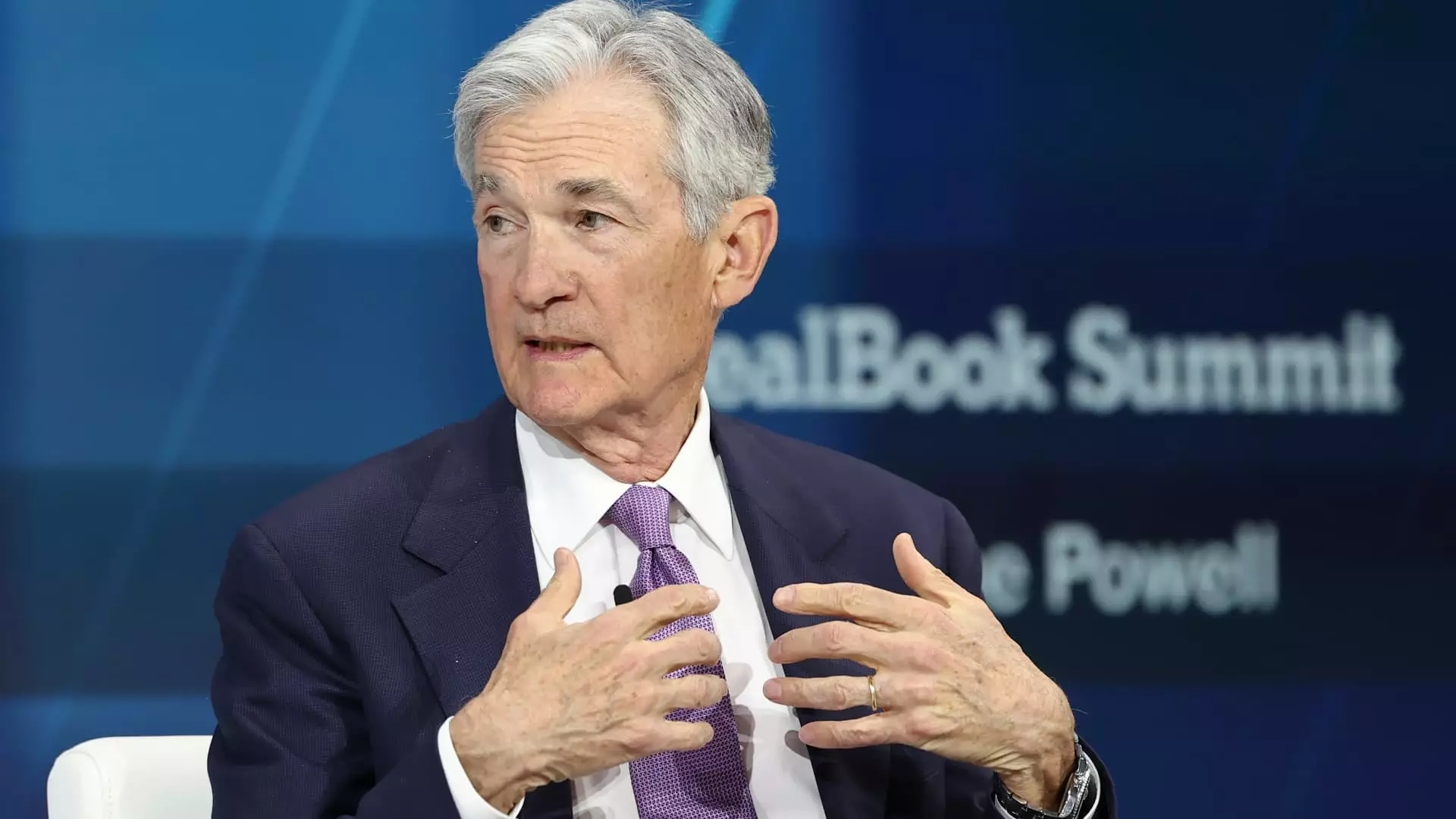In recent times, the cryptocurrency landscape has experienced a seismic shift, and Federal Reserve Chair Jerome Powell’s remarks about Bitcoin may have contributed significantly to this momentum. By drawing parallels between Bitcoin and gold, Powell introduced a nuanced perspective that could impact investor sentiment and the future trajectory of digital currencies.
Powell’s assertion that Bitcoin is not a threat to traditional fiat currencies, such as the U.S. dollar, but rather a competitor to gold, invites a critical examination of how digital assets are perceived in financial markets. This comparison suggests that Bitcoin is more about store-of-value speculation than serving as a transactional medium. For many investors, Bitcoin has emerged as a hedge against inflation—a role traditionally held by gold. However, Powell emphasized the volatility of Bitcoin, noting that its price can fluctuate wildly, a characteristic that makes it less suitable as a stable store of value.
This distinction is crucial for potential investors and regulatory bodies assessing Bitcoin’s legitimacy. Powell’s comments might have inadvertently added an air of credibility to Bitcoin, framing it as an asset class that is still finding its footing in the larger financial ecosystem. This introduction of legitimacy could foster a more significant acceptance of Bitcoin among mainstream investors, even as it remains a speculative asset.
The Market Response: A Surge in Bitcoin Prices
Following Powell’s remarks, Bitcoin witnessed a notable price surge, climbing over 4% to surpass the $103,000 mark. This immediate market reaction illustrates how influential high-profile endorsements—or even simplistic comparisons—can be on investor behavior. Market strategist Joel Kruger remarked on the importance of Powell’s comments, indicating that they could add another layer of credibility to Bitcoin as a formidable player in global finance.
The relationship between Bitcoin and gold in this context reveals underlying investor psychology. Gold is traditionally viewed as a “safe-haven” asset; thus, associating Bitcoin with it can create a favorable narrative for investors who might otherwise view digital currencies with skepticism. Moreover, with Bitcoin still representing a fraction of gold’s market size, the potential for substantial growth becomes an enticing proposition for investors.
The timing of Powell’s comments coincided closely with significant political developments, including Donald Trump’s nomination of Paul Atkins, a known supporter of cryptocurrencies, to head the Securities and Exchange Commission (SEC). This parallel suggests a burgeoning atmosphere of acceptance and potential regulatory clarity in the crypto space. With more supportive figures entering key regulatory positions, the landscape may become more favorable for cryptocurrency trading, thereby stimulating further investment interest.
While Powell’s comments alone cannot account for the rapid ascent of Bitcoin prices post-election, they certainly added to the momentum. The interplay between governmental policy, public speaking by influential figures, and market responses complicates the dynamics of cryptocurrency investment and regulation.
As Bitcoin continues to evolve, the influence of stakeholders such as Federal Reserve leaders and policymakers will remain pivotal. Powell’s characterization of Bitcoin as a competitor to gold rather than fiat currency could facilitate a shift in perception, prompting institutional investments and a more thoughtful dialogue about digital currencies within mainstream finance.
Yet, the volatility and speculative nature of Bitcoin remain pressing concerns. Without a framework for consistent regulation, investors may approach Bitcoin with both enthusiasm and caution. The interplay between regulatory actions, market responses, and high-profile endorsements will shape the future trajectory of Bitcoin, and its standing in the financial markets will depend on how it navigates these challenges moving forward.
Powell’s remarks, while not explicitly bullish or bearish, contribute to a broader narrative that recognizes Bitcoin’s potential and volatility within the modern financial ecosystem. As the conversation surrounding cryptocurrencies grows more sophisticated, investors will need to remain vigilant and informed to successfully navigate this emerging asset class.


Leave a Reply